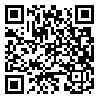BibTeX | RIS | EndNote | Medlars | ProCite | Reference Manager | RefWorks
Send citation to:
URL: http://journal.zums.ac.ir/article-1-2528-fa.html
Background and Objective: Islam has always laid emphasis upon the health of body and soul. There are a lot of instructions and lessons presented in Quran about healthy nutrition which is a very important factor for attaining the body and soul health. “We send down for believers from Quran whatever which is mercy and healthy”. In this article, we considered some of these Quran’s guidelines. Materials and Methods: This review study was carried out to collect healthy nutrition instructions out of verses of the Holy Quran, credible Hadiths (sayings) of Imams, Quran interpretations, and books of Hadiths enlightenment, and by getting help from teachings of scholars and professionals in Islamic civilization. Result: From the viewpoint of Quran, nutritional health is in a relationship with spiritual issues and monotheistic worldview. Some of the Quranic recommendations about nutrition hygiene and health are: advice on using licit and pure foods and drinks and not obeying satanic desires: “Oh, People, eat licit and pure from whatever which is on the earth and do not follow the devil path” to keep the illegal edibles away: “dead’s meat, blood, pig’s meat and whatever which is not slaughtered by the name of the God, all are illegal on you” paying attention to nutrition type and thinking about its qualitative structure: “human should be able to have full consideration and deliberation on his/her food” along with its quantitative structure: “eat and drink but do not lavish” fasting and its importance in nutritional hygiene: “it is very good for you to fast” exercising and its relationship with healthy nutrition: “He made the earth obedient and flat for you, so move in its ups and downs and use its aliments” and other examples. Conclusion: The nutritional hygiene has a high standing point in the Holy Quran so that the Prophet and Imams (May peace be upon them) and other Islamic sages, who were affected by Islamic teachings about hygiene in general and nutritional hygiene in particular, have expressed some worthy recommendations. A valuable perspective concerning nutritional hygiene in Quran is that we should benefit from licit and pure aliments and avoid the illicit ones. Through continuing this perspective we can step on and be consistent in monolithic path.
دریافت: 1392/11/28 | پذیرش: 1392/11/28 | انتشار: 1392/11/28
| بازنشر اطلاعات | |
 |
این مقاله تحت شرایط Creative Commons Attribution-NonCommercial 4.0 International License قابل بازنشر است. |




